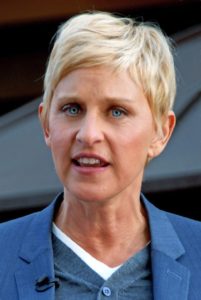Ellen Goodman: The Not-So-Constant Gardener
As I close up my house in Maine and begin to direct my attention back to the world, I wonder: How do we pay the full coin of attention to danger and death without being overwhelmed?CASCO BAY, Maine — It’s time to close up the house. There is frost on the asparagus ferns that escaped our harvesting. The gold finches that fought over perches on the bird feeders have put on their olive-drab traveling clothes and headed south. In the meadow, a tardy cluster of monarch butterflies hangs on to the aster for dear life.
I walk out to inspect the vegetable garden that once lined up with such military precision. Last May, I gave the plot its marching orders. Straight rows of beans and bok choy, precise lines of tomatoes and leeks. Now the remnants are lost in the riot of October. I glean a couple of eggplant and a handful of cherry tomatoes from the chaos. I pull the final cabbage, half-eaten by some marauder, and the last of the lettuce that bolted bitterly toward the sky.
The best-laid plans of spring have turned into this tangle of autumn. In the brisk melancholy of the day, I see the tangle made of my own summer plans: the striped bass that escaped my fishing rod, the porch furniture that remained unpainted, the Microsoft files opened and left dangling in my summer hard drive.
Soon, the remains of the vegetables will be sent to the heap where they will melt back into compost. The arugula will no longer be distinguishable from the green beans. The cabbage will be one with the chard. Soon, too, the brilliant foliage that makes death of things into a tourist attraction will be gone. Red maple and golden oak leaves will fall into a monochromatic ground cover the color of bark and earth.
As I put these beds to bed, I remember a story my mother told me from her own childhood. One summer at the beach with her aunts, she spent hours collecting and layering colored sand in a huge jar. One variegated tone topped the next as carefully as possible. At the end of the vacation, she packed it in her bag for the trip. But by the time she got home, it had turned to one homogenous jar of beige.
Now, in the late autumn of my mother’s life, the rich layers of 92 years have also turned to monochromatic beige. When I visit her these days, I rake through the leaf pile of lost memory in search of some remaining color. I remind her of the cheesecake she made, the dress she wore to Jack Kennedy’s wedding and my father’s name. Sometimes I uncover a bright leaf of memory. Often the landscape is as barren as November.
It’s time to close up the house. On this last weekend, I turn off the radio that brings news to the island. The world is too much with us, late and soon, wrote the poet Wordsworth famously, two centuries ago. That was before the world came into our consciousness every minute, bearing its terrible fears and troubles like a street full of beggars pulling at us for attention.
This week the news is all about North Korea. And Iraq. And Iran. And Sudan. It’s news of AIDS and atom bombs. The small fear of E. coli in the lettuce competes with the ultimate fear of nuclear weapons in maniacal or miscalculating hands. Attention, please. How do we pay the full coin of attention to danger and death without being overwhelmed?
I have lived my whole life with the fearful possibility of nuclear catastrophe. I ducked and covered, held my breath during the Cuban missile crisis, felt the chill of the Cold War, and the danger as the nuclear “club” counted up to eight. We have dodged that catastrophic bullet for so long. Can we dodge it forever? To pay appropriate attention to this apocalyptic danger is to be paralyzed in a nuclear freeze. To ignore it is to whistle in the gathering dark.
In this autumn, this fall, I watch my mother failing and watch my grandchildren growing through the most labor-intensive work of parenting. They are becoming joyful, caring children in a world that is rich with possibility and rife with danger. How does every generation hold danger in one hand and joy in the other? Death over there, life over here?
It’s time to close up the house. Tomorrow I’ll bring home a handful of yellow periwinkle shells and a jar of blackberry jam to take me through the winter. Today, before the sun takes its early bow, we will turn over the garlic patch, sow fresh cloves, and pick a place in the orchard for a new Macoun apple tree. We will do what people do, plan and plant. Just as if we were guaranteed another spring.
Ellen Goodman’s e-mail address is ellengoodman(at symbol)globe.com.
Your support matters…Independent journalism is under threat and overshadowed by heavily funded mainstream media.
You can help level the playing field. Become a member.
Your tax-deductible contribution keeps us digging beneath the headlines to give you thought-provoking, investigative reporting and analysis that unearths what's really happening- without compromise.
Give today to support our courageous, independent journalists.




You need to be a supporter to comment.
There are currently no responses to this article.
Be the first to respond.